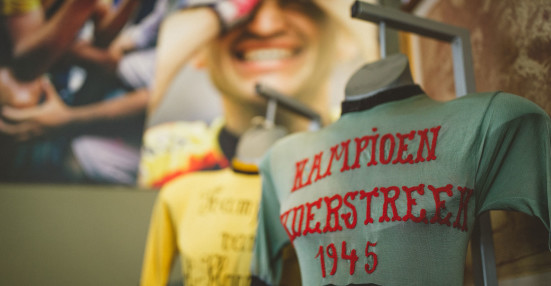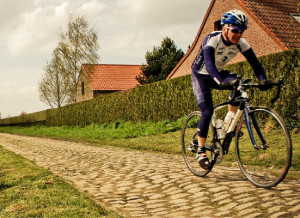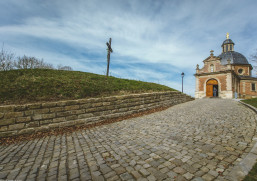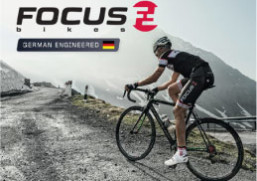Flemish Pride: The Tour of Flanders

In the corner of a garage in Lede, Belgium, there are a dozen boxes stacked to the ceiling. Each box contains hundreds of small yellow flags with the black Flemish lion. This is the flag of the people, not the government. This is the identity of a culture that for centuries others have tried tirelessly to eradicate. When I speak with Ghislain, the owner, about bike racing, I speak of the favorites to win. He speaks of the Belgians. When he asks if I would like a beer, I am served a Westmalle Dubbel, his favorite Flemish beer. There are thousands of garages like this, and owners like Ghislain, many of whom I’ve met. They form the backbone of Flemish life, a culture that, unless you embrace, you risk remaining an outsider.
On May 25, 1913, Belgian sports writer Karel Van Wijnendaele organized the first Tour of Flanders, crossing Dutch-speaking Belgium because “all Flemish cities had to contribute to liberate the Flemish people”. At the time, it was very important to give recognition to the Flemish, and the creation of the race did just that. De Ronde is as much a part of the heritage of the Flemish people as the processions of Veurne and Bruges, the Last Post at the Menin Gate of Ypres or the ship blessing at Ostend. This race is the most celebrated of all the Flemish festivals, and no other creates such an atmosphere, such a popular fervor. Flemish riders say to win, you need heart. If you feel Flanders in your blood, you feel the pain less in your legs.
While images of the Tour of Flanders conjure tales of heroic efforts across windswept cobbles and up mud soaked hills, for anyone who has ridden in these conditions, the effort is more damage control and survival, and any hint of heroism is aimed at trying to overcome the madness that has placed one in this position to begin with. There is a sense of romance about the places the Tour of Flanders passes through, a sense that there exist these utopian villages with shrines erected to memorialize the suffering. Iconic symbols must certainly mark this hallowed ground, designating the holy spots of our sport that those who live at the curbside must recognize and value. The truth is, yes, and no. Yes, they are significant locations in the world of cycling, but to the local population, they are only a small part of the important theme of every discussion cycling ultimately touches on here- life in Flanders.
My feeling is this classic has survived intact because it was created for the people, ridden through the working man’s terrain, and meant to represent the people. It is not a marketing exercise or an upper class social event that caters to the wealthy, yet relies on the working class for support. There are rules, of course, and they are bent by many, but followed by the majority. There is a controlled chaos on the first Sunday every April that has one simple goal – to celebrate Flanders and the Flemish people. The roads are raced on for a few days of the year, but worked on every day. Tractors, cars and trucks, hauling hay, cattle, fruit and vegetables. Unlike the Tour de France, the heart of this masterpiece remains the same and the beauty of its content has been refined over time. Now, the biggest change is which climbs are excluded and what is the order ridden. But there is no grand announcement of the course, no invitation to attend a lavish ceremony in an ornately decorated theater, complete with speculators and prognosticators. It hasn’t been marginalized by TV, marketing, instant television heroes, or Lance Armstrong. “As a Belgian, winning Flanders for the first time is far more important than wearing the maillot jaune in the Tour” said Johan Museeuw, who accomplished both. Imagine the feeling that comes with winning the Tour of Flanders three times.
 I can look at a map of the major mountain stages of the Tour and see exactly what the route is doing. To do this with Flanders means knowing the tiny roads and in doing so is to know the people, the culture, and understanding everyday life beyond bike racing. The beautiful part of looking at a race course and immediately envisioning the race-day strategy and knowing the small roads and villages it goes through is perhaps like being able to read music. While those who listen can appreciate the song, those who can read music and understand the score can better appreciate the symphonic nuances. For Flanders, it’s the every day roads of rural life and agricultural lifestyle that suddenly become the story line for a modern bike race. There’s a left turn before the Paterberg when the road suddenly narrows to barely the width of a tractor. The twisting descent begins with a view looking across at the crest of the climb, and finishes with a sharp right hand turn at the bottom, best taken wide to the left to ease the transition onto the steep cobbles. On the Holleweg kasseien there is a paved section on the far left just next to the gutter 100 meters from the end. After 3200 meters of bone jarring cobbles, this is a stretch worth fighting for. The route that connects the Oude Kwaremont, Paterberg, Koppenberg, Steenbeekdries, Taaienberg and Eikenberg is as beautiful a stretch as exists in bike racing. And that beauty is as visual as it is ephemeral. While we expect to see TV coverage of the ascent of the Koppenberg and the Muur, the excitement is somewhat muted by these expectations. It is the secrets that lay in the fields, draped across the hillsides, and hidden in village corners that I am connected to. And it is here that I memorize hundreds of images that flash by in a second, and when linked together create a perfectly edited film, repetitively viewed while counting down the days until spring.
I can look at a map of the major mountain stages of the Tour and see exactly what the route is doing. To do this with Flanders means knowing the tiny roads and in doing so is to know the people, the culture, and understanding everyday life beyond bike racing. The beautiful part of looking at a race course and immediately envisioning the race-day strategy and knowing the small roads and villages it goes through is perhaps like being able to read music. While those who listen can appreciate the song, those who can read music and understand the score can better appreciate the symphonic nuances. For Flanders, it’s the every day roads of rural life and agricultural lifestyle that suddenly become the story line for a modern bike race. There’s a left turn before the Paterberg when the road suddenly narrows to barely the width of a tractor. The twisting descent begins with a view looking across at the crest of the climb, and finishes with a sharp right hand turn at the bottom, best taken wide to the left to ease the transition onto the steep cobbles. On the Holleweg kasseien there is a paved section on the far left just next to the gutter 100 meters from the end. After 3200 meters of bone jarring cobbles, this is a stretch worth fighting for. The route that connects the Oude Kwaremont, Paterberg, Koppenberg, Steenbeekdries, Taaienberg and Eikenberg is as beautiful a stretch as exists in bike racing. And that beauty is as visual as it is ephemeral. While we expect to see TV coverage of the ascent of the Koppenberg and the Muur, the excitement is somewhat muted by these expectations. It is the secrets that lay in the fields, draped across the hillsides, and hidden in village corners that I am connected to. And it is here that I memorize hundreds of images that flash by in a second, and when linked together create a perfectly edited film, repetitively viewed while counting down the days until spring.

